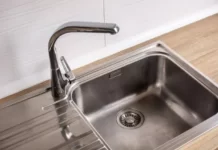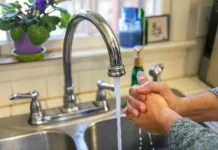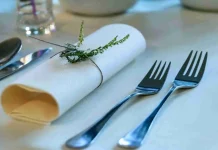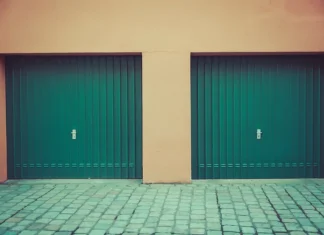A low-maintenance, low-cost countertop and a countertop that looks classy, elegant, and attractive used to be two separate things, but times have changed. Isn’t it wonderful that things have changed? Quartz countertops are the peak of elegance and functionality today. You’ll never have to choose between beauty and ease of care anymore, with colors ranging from polished black to traditional colors it comes with a complete package.
In today’s market, quartz countertops are the most popular option. It is the preferred surface for both home and commercial applications. Quartz countertops are kind of stone surfaces that combine the best of natural stone with advanced production processes to produce a surface that is visually comparable to granite and marble while also being more durable.
How are quartz made?
Approximately 90% of quartz countertops are constructed of loose quartz. The rest of the combination is made up of resins and pigments. Ingredients are mixed and combined forming into slab form. In the final step, a vacuum and vibration process applies tonnes of pressure to the slab and turns it into a countertop.
Does Quartz Need to be sealed?
If you have ever used a quartz countertop in your kitchen or in the bathroom then this question must have confused you. Do quartz countertops need to be sealed?
Quartz Countertop is a nonporous material, thus the sealer will not penetrate into it. As a result, if you spray some liquid over the countertop, the sealant will settle on top, forming a fluid layer so because of this property of quartz it does not require any sealing.
Why should Quartz Countertops not be sealed?
Now that we know that Quartz Countertops don’t require any sealing, let’s get into further details of why not.
Many stone surfaces, such as granite and marble, require sealing. Natural stones have pores that allow liquid to pass through. In such stone types, rough wear and tear over time can reveal the pores more. Although quartz is a type of stone, quartz countertops are not the same as stone properties.
Some other properties of quartz are as follows:
Quartz has a lack of porosity
Due to their absence of porosity, quartz counters do not require sealing. Because non-porous materials have a built-in seal, liquids and stains cannot penetrate them. Countertops made with polished marbles or granite have porous properties so it necessitates regular sealing.
It is unbreakable and more durable
Quartz countertops are made by combining quartz rocks with silicon dioxide, coloring additives, and bonding resins. Natural quartz is roughly 90% of the material used in the fabrication process. The quartz countertop’s many parts work together to make it significantly stronger than genuine quartz so it becomes unbreakable.
Natural Sealing of Quartz Countertop
A natural seal is generated after the finishing process of a quartz countertop. As a result, it does not require as much sealing and resealing as granite or marble countertops.
How To Keep Quartz Countertops Protected Without Sealing
Since sealing quartz countertops is no longer necessary, you merely need to take care of them as much as possible if you want them to stay in good shape for a long time. Even if they are low maintenance, problems might emerge if they are not properly cared for. This is why to properly care for your quartz countertops, you simply need to follow a few easy rules.
Spills should be cleaned as soon as possible
This low-maintenance countertop is simple to keep clean. All you need is a moist cloth and some light dish soap to clean up common spills or accidents. Though water should never be left on marble, a damp towel can be used to remove a persistent stain on quartz before cleaning it down with a damp sponge and dish soap.
Cutting items on the surface of your quartz countertop is a no-no.
It’s the effect of particular meals on the surface that you need to be concerned about, and not the scraping of the surface. Never chop citrus fruits or other acidic foods on it. Otherwise, the acids in these meals may cause your quartz countertop to deteriorate and leave an unsightly dull patch.
Heat protectants should be used as much as possible. Extreme heat may potentially cause your quartz countertop to break.
It may be resistant to heat, but it isn’t heatproof. In other words, it’s fine to set a hot coffee mug or bowl of soup on it every now and then, but setting a searing pot or skillet on it for an extended period of time is another issue. Unfortunately, this can cause discoloration or burn marks on the surface of your valuable quartz countertop. Always use a potholder or trivet when placing a pan of freshly cooked food on the counter.
Chemicals are to be avoided at all costs
Harsh chemicals or abrasive materials can etch quartz, they should never be used on it. Keep clear of the following:
- Oxidizers
- Free radicals
- Alkaline materials (concentrated)
- Abrasive and high acidity cleansers
Furthermore, no routine maintenance is required. Because your countertop will never be sealed, waxing or polishing will never be necessary.
Side Effects of Quartz Countertop Sealing
Despite all of the advantages that seem to be sealing your quartz countertop, it isn’t the best choice. A sealant isn’t needed with quartz. It’s a waste of time and money to use one, and it can even damage your counter. Quartz isn’t the same as other common countertop materials, and sealants have their own set of disadvantages. Without the need for a sealant, a quartz countertop can be both durable and attractive.
Some key facts to consider if you still want to seal Quartz Countertop
The Sealant Isn’t Absorbable
Unlike granite or marble, quartz surfaces do not retain stains or spills. This makes them more sturdy for everyday usage, but it also makes them less sealant absorbent. The porous nature of a quartz countertop is insufficient for effective sealant absorption. Because the sealant isn’t absorbed, it won’t travel anywhere but the surface of your countertop.
It becomes Sticky
It’s probable that the sealant will become sticky around the sink’s edges, making removal difficult.
Leaving a layer
Some sealants leave a coating on the counter, which is inconvenient and potentially harmful at worst.
Damaging Countertop
The improper sealant could damage the surface of the countertop, making the natural sealant less effective.
Another downside of sealing a quartz countertop is that any conventional sealant will not work. Quartz surfaces demand different upkeep and sealants than natural stone worktops.
Before you put anything on your countertop’s surface, think about the repercussions. Some sealants will adhere to your countertop nicely, while others may not. The wrong sealant could actually cause more harm than good.
Advantages of Leaving Quartz Countertops Unsealed
Ready to use
The biggest advantage of not sealing a quartz countertop is that it may be used right away. The production procedure produces a material that is strong and long-lasting, with an inherent seal.
Low-maintenance
Finding a countertop that was both beautiful and easy to clean used to be challenging. Quartz countertops are not only beautiful, but they’re also low-maintenance and easy to clean, and they don’t need to be sealed
Final Thoughts!
There is no need to seal quartz countertops. Adding an extra layer has a number of disadvantages. Consider the benefits and downsides of both scenarios before deciding whether or not to seal your quartz countertop. Without sealing your quartz countertops, here are some tips on how to care for them properly.
If you don’t want to seal your quartz, take extra precautions to keep it free of scratches and stains in the first place. Do not do heavy-duty or physically demanding operations on quartz, such as heating or frying (even microwaves) or excessive food preparation (chopping, dicing, etc.). Quartz isn’t completely heat resistant. This is also the time to utilise pilling feet protectors if you have pets or small children. Please keep in mind that minor scratches may still occur.
Finally, do quartz countertops need to be sealed? They don’t, in fact. However, sealing them saves you a lot of time and effort compared to not sealing them. Furthermore, your money will remain safe and valuable over time.
If you’re not sure which product will work best for sealing your quartz countertop, seek advice from specialists or the business where you purchased it. They’ll provide you with detailed advice on how to clean and prepare your surface so that nothing gets in the way of the sealant’s effectiveness on your particular type of stone.












